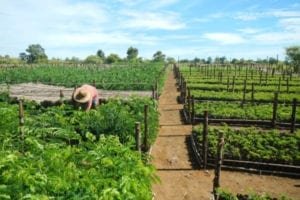The report highlights that the ongoing review of the regulatory framework governing the UK’s financial services sector – made necessary by the UK’s departure from the EU – provides an opportunity for the UK to lead the way in incorporating environmental sustainability into the regulatory framework governing its financial system and, in doing so, influence key changes to the international financial rules and standards.
Climate-related disclosures
The report recommends accelerating the take-up of climate-related disclosures, and states the government should support a review of existing guidance, standards and definitions governing climate-related disclosures (including the TCFD, Streamlined Energy and Carbon Reporting, and the Carbon Disclosure Project).
The goal would be to ensure a more rapid take-up and greater consistency and comparability between disclosure requirements.
The report also calls on regulators to provide guidance to improve voluntary reporting of scenario analysis under the TCFD, with a view to introducing mandatory scenario analysis from 2025.
‘Our future economic prosperity depends on the choices we now take to build back better from Covid and the centrality of climate and nature in recovery strategies. Greening finance is an urgent priority and this report sets out the necessary actions to effect the sustainable transition we need to see for our wellbeing, future generations and nature.’
PAUL MORLING
Economist at the RSPB
Net zero transition plans
The report suggests the government, Bank of England and the Financial Conduct Authority should consult on a roadmap to introduce regulation that requires financial institutions to produce net zero targets and transition plans in the 2020s, with regulation starting no later than 2025.
Part of this consultative process should involve regulators providing guidance to support and encourage all sub-sectors of the financial services industry to publish net zero transition plans and targets on a voluntary basis, with guidance to be published no later than 2022.
Pension fund managers should be required to automatically enrol new beneficiaries into Paris Agreement-aligned pensions funds and proactively engage with existing beneficiaries to outline the benefits of transferring fund holdings into Paris-aligned funds and environmental, social and governance (ESG) schemes.
UK policy makers and regulators should work together to set capital treatment for banks and insurers in a way that reflects the long-term risks of assets to financial stability, to incentivise more strategic asset allocation in environmentally sustainable assets and a transition away from high carbon or environmentally damaging assets.
The value of nature
The government should accelerate and lower the cost of private investment in low carbon infrastructure and services by publishing a detailed and cross-Government net zero delivery strategy ahead of COP26.
This should set out the key policy decisions that will be adopted over the next five to 10 years on a sector-by-sector basis to put the UK on a credible pathway towards its net zero target.
The Group also calls for more ambition on carbon pricing and in particular a strengthening of the UK Emissions Trading Scheme (UK ETS). This should include government rapidly consulting on the alignment of the UK ETS with the net zero target, setting a rising carbon price trajectory throughout the 2020s, gradually phasing out free emission allowances and expanding the scope of the scheme to a growing number of economic sectors where feasible.
Building on the Dasgupta Review commissioned by HM Treasury, the report states urgent efforts should be made to embed the value of nature into economic policy and investment decision making and accelerate private investment in nature restoration projects.
This requires strengthening the target setting and delivery process in the Environment Bill, making reporting in line with the new Taskforce for Nature-related Financial Disclosures (TNFD) mandatory in the 2020s, and working towards the introduction of a mandatory requirement for businesses to prepare and publish biodiversity loss mitigation and adaptation targets, and associated transition plans.
Leadership and COP26
Building on domestic reforms, the Group advises the UK should use its leadership position on the global climate agenda following the G7 summit and its presidency of COP26 to encourage a greater focus on environmental and climate considerations in the rules and standards governing international financial markets.
This should include collaborating with key international partners, including the EU, on areas of common interest such as the development of green taxonomies and climate and nature-related disclosure requirements.
The UK should use its presidency of COP26 to finalise a rule book for international carbon trading under Article 6 of the Paris Agreement. The Aldersgate Group would also welcome the restoration of the historical commitment of 0.7% of Gross National Income on Overseas Development Aid, to demonstrate the UK’s dedication to international climate finance.
 Play Video about This Rock Might Just Save The World
Play Video about This Rock Might Just Save The World Play Video about Play 2 hours of rock
Play Video about Play 2 hours of rock Play Video about Play 2 hours of brook
Play Video about Play 2 hours of brook Play Video about Play 2 hours of sheep
Play Video about Play 2 hours of sheep














































